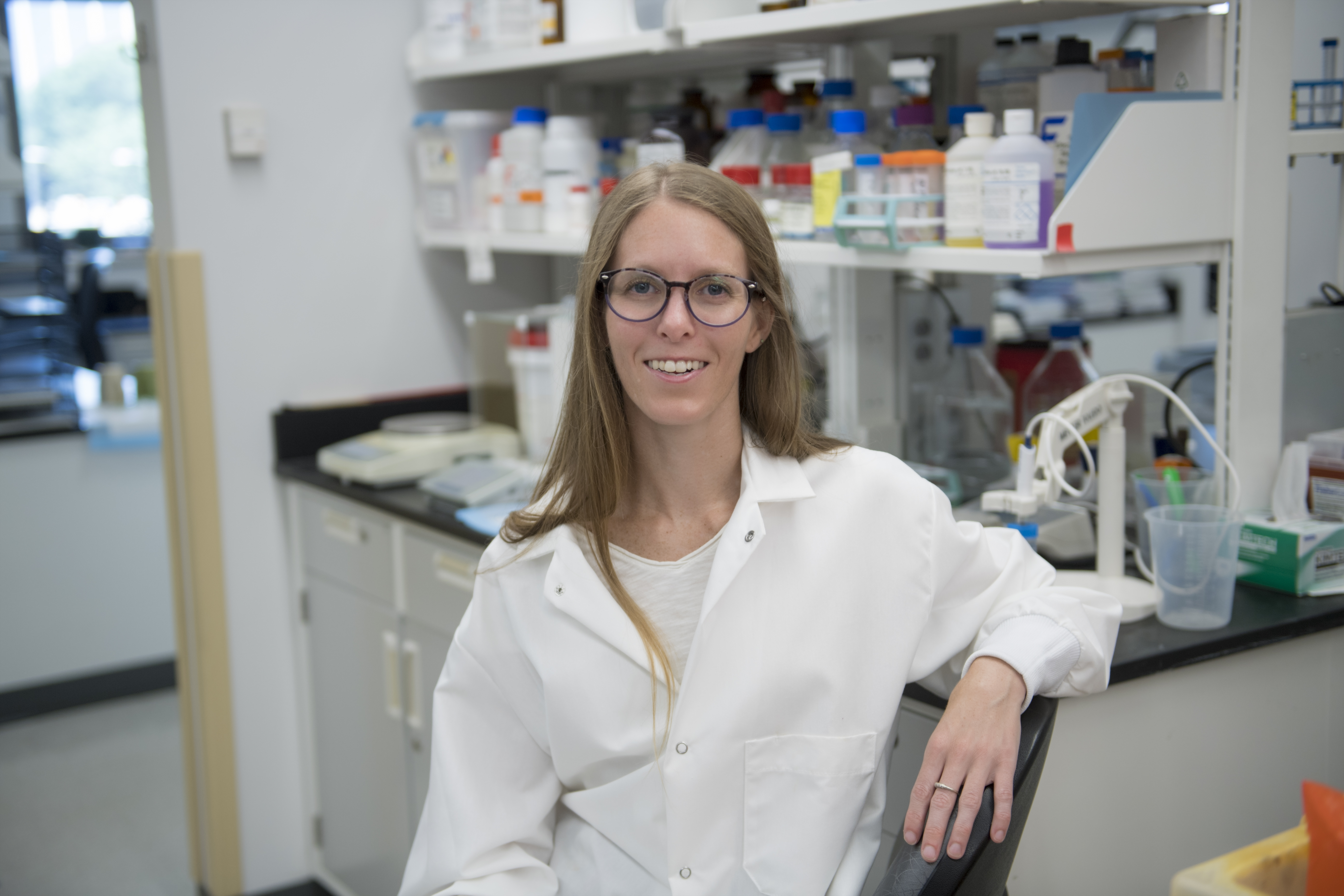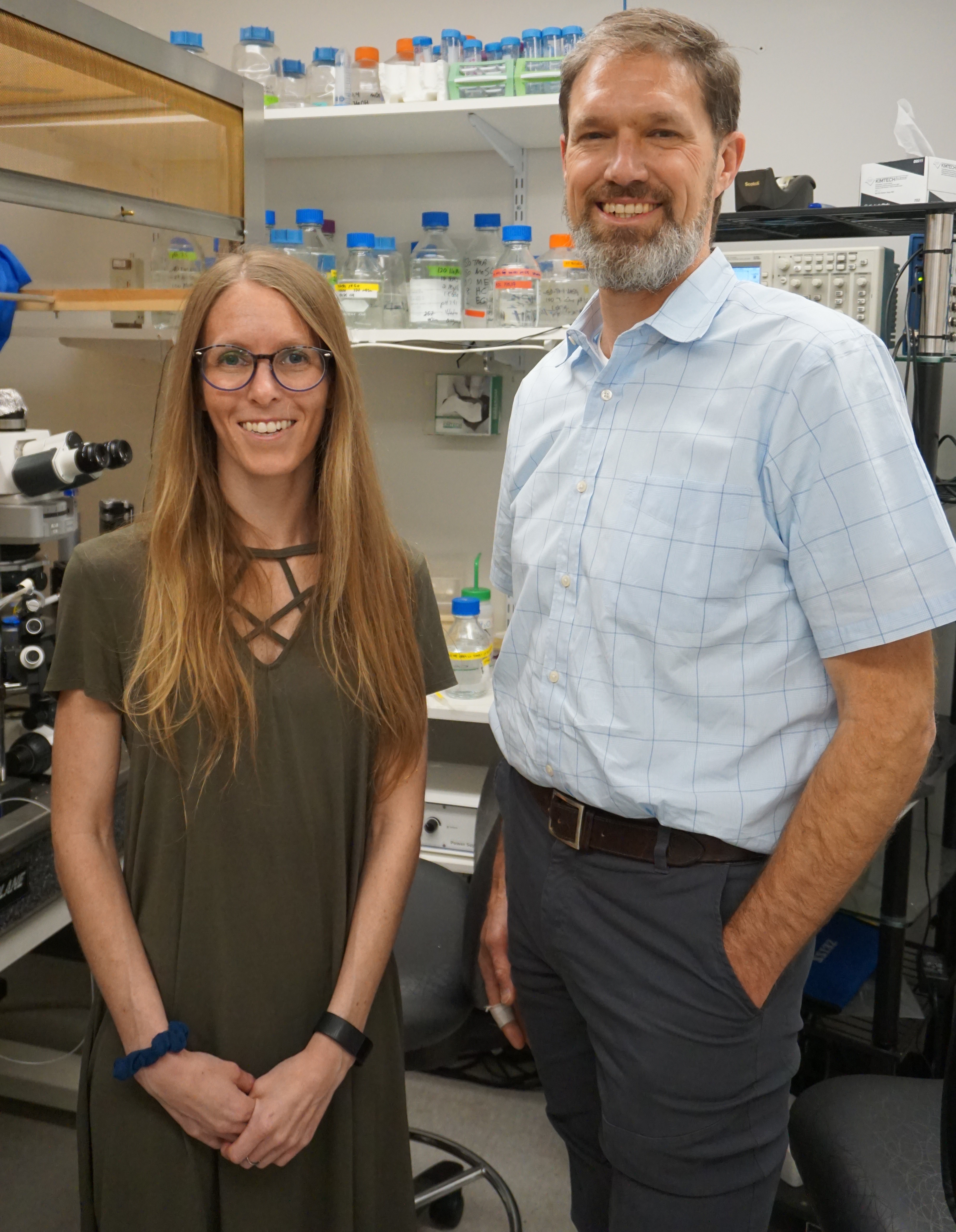
A doctoral candidate in the Department of Physiology and Biophysics, Ashley Bennett has been awarded the Department’s Ramsey Award and the medical school’s C. C. Clayton Fellowship for her molecular dynamics computer simulations that examine how proteins move in space and time.
Ashley Bennett, a Department of Physiology and Biophysics doctoral candidate, has heard her share of those who criticize science, or worse, dismiss it. She’s heard those who are vehemently against vaccinations, who scoff at the notion of climate change, who assert their belief in a flat planet Earth. But when she considers her possible responses, she’s not quick to judge or to leap onto a soapbox and preach pro-science gospel.
Why? Because after her years of science research in college, graduate school and various internships, she’s concluded that scientists can and should do a better job of communicating to the public about the work they do and what it means, especially when taxpayers are funding the research. “We need to include them in the scientific discussion,” she says.
In addition, she says, “I’d like people to understand that science is a process, and that sometimes things that were initially learned turn out to be wrong, and that with any problem you have, there doesn’t have to be just one right answer.”
Providing community outreach to engage with the public is one of her key career goals after graduate school, in addition to teaching and research. “But if I could figure out a way to make outreach a full-time gig, I’d do it,” she says emphatically.

I. Scott Ramsey, Ph.D., an assistant professor in the Department of Physiology and Biophysics, says Ashley Bennett “is thinking years and decades, even generations, ahead of others in the field.”
Bennett holds a B.S. degree from the University of North Carolina at Wilmington, where she pursued a double major in chemistry and biology and a double minor in psychology and math. And in the past two years, she’s received two awards that recognized her as one of the outstanding doctoral students in both her department and the School of Medicine.
In September, Bennett is scheduled to defend her dissertation in the medical school’s Department of Physiology and Biophysics.
Her research has focused on molecular dynamics, which uses computer simulations to examine how atoms and molecules move in space and time according to Isaac Newton’s laws of motion. In particular, Bennett is studying how protein residues that make up the Hv1 ion channel, which is embedded in the cell membranes of humans and many other species, affect function of the channel. These channels regulate cell acidity, and she’s exploring how Hv1 somehow senses a cell’s pH level, and if needed, opens or closes itself to allow protons to be released from the cell.
She explains that when protons are released from a cell through Hv1 channels, the cell’s interior becomes less acidic; this process is measured as an increase in pH. If cellular pH gets too low or too high, many cell functions are altered. A cell may die if its pH isn’t corrected quickly enough.
The Hv1 channels, therefore, are essential to healthy cell function, Bennett says, and affect many major body processes such as how the immune system attacks pathogens. “They’re central to everything we do.”
Her findings have been published in four publications, the most significant of which was the Journal of General Physiology in 2018, in which she was a co-first author of an article. She studied the Hv1 channel using a new computational method that she developed. “I was excited to figure out a solution for a problem that others said was unsolvable.”
I. Scott Ramsey, Ph.D., an assistant professor in the Department of Physiology and Biophysics, is Bennett’s principal investigator. He says her clear-cut goals and deep expertise in molecular dynamics, even at the outset of their collaboration, were a rarity in his academic experience. And, “she immediately sought out to explore the deepest, most fundamental and most difficult problem in the field.”
Though Bennett says the technology to answer some of her questions does not even yet exist, she’s confident her work could eventually pave the way for drug development.
Most laudable, Ramsey says, is that “she’s thinking years and decades, even generations, ahead of others in the field.”

